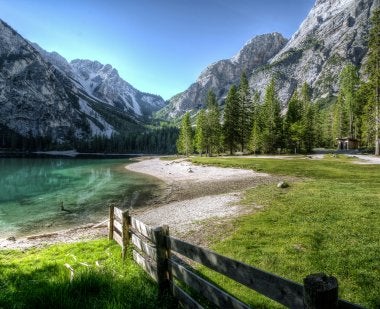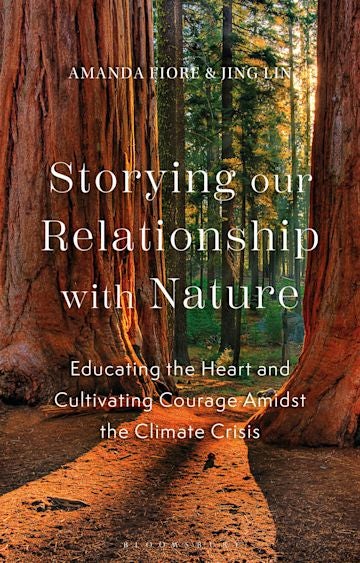
In 2019, Amanda Fiore Ph.D. ’24 was spending a semester abroad in China as she worked toward her doctorate in international education policy from the University of Maryland. She asked Jing Lin, professor of international education policy, whether she could take her Ecological Ethics and Education course online.
Lin agreed, on one condition: Fiore would be required to turn in reflective essays analyzing the weekly readings and research.
“Because I am a writer, I got really excited,” said Fiore. “I was writing long, 15- to 20-page essays for these reflective pieces.”
When she received Fiore’s essays, Lin was astonished by the detail and depth of her writing. She began writing back thoroughly detailed comments and feedback on each of the essays.
“I suggested, why don’t we turn it into a book?” Lin said.

On April 4, Fiore and Lin’s book Storying Our Relationship with Nature: Educating the Heart and Cultivating Courage Amidst the Climate Crisis was published by Bloomsbury Academic. The book offers an optimistic alternative to the grim climate change stories in the 24-hour news cycle.
Storying Our Relationship with Nature is formatted as a dialogue between teacher and student, echoing back to its origins as Fiore’s class assignment. Readers follow the two characters as they navigate greed and isolation as major root causes of the climate crisis and respond with compassion, love and resilience.
The authors examine the severed connection between humans and nature and how individuals can restore this relationship through storytelling. They argue that building a personal narrative with nature allows humans to gain agency and empower themselves in the struggle against climate change. As each chapter delves deeper into the complex relationship between humans and nature, readers are encouraged to look inward and reexamine their own relationship with nature while balancing reality and hope surrounding the current state of our climate.
“People are encouraged to go on this journey inward, and seek personal transformation first and connect it to social transformation,” said Lin.
Lin teaches courses on ecological ethics and contemplative inquiry and holistic education, as well as a recent course on global climate change and education at UMD. She urges her students to look at all matters of education through a more personal lens.
“[Fiore and I] think that building connections with nature is really work of the heart,” said Lin. “[Western] education works so much on the intellect: studying, reading and learning about nature like it’s outside of us. How do we reconnect with nature?”
The book stands out from other examinations of the climate crisis as it focuses on using contemplative practices–such as storytelling, mindfulness and meditation–as tools to help students and teachers reconnect with nature and reinvent the way they respond to the emergency.
“If we all loved each other the way we are supposed to, if we all had our hearts open and [saw] one another and nature and the world as we are meant to, it would be impossible to do the things we are doing now,” Fiore said.
Top photo by eberhard grossgasteiger



